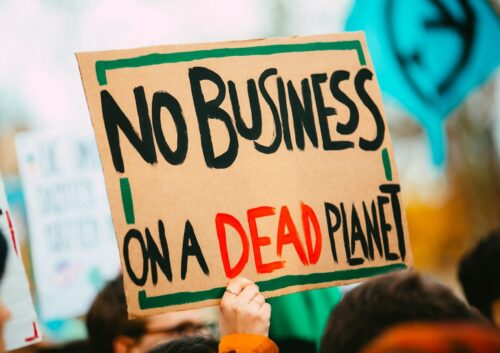
Canada is spending more to help automakers build out electric vehicle supply chains in the country as part of its yearslong effort to attract new auto investments and compete with the U.S. EV subsidies enacted under President Joe Biden. [emphasis, links added]
The tax credit, included in the government’s new 2024 budget proposal, offers manufacturers a 10% subsidy on the capital cost of buildings used in “key segments” of EV production and is designed to build on an existing tax credit Canada passed in 2023 to subsidize 30% of EV makers’ equipment costs.
Unlike the 2023 tax credit, however, Canada’s 2024 credit is narrowly targeted to auto manufacturers that have committed to building out an EV supply chain in the country, requiring qualifying manufacturers to have existing investments in three key areas: cathode active material manufacturing, battery cell production, and EV assembly, according to the text of the budget proposal.
The credits are part of the government’s response to the 2022 passage by Democrats of the Inflation Reduction Act, which tied subsidies for EVs and batteries to domestic sourcing requirements.
Inflation Reduction Act subsidies have sparked fierce criticism from U.S. allies in Europe and Asia, who have argued the law is protectionist and discriminatory against their countries, as well as a potential violation of World Trade Organization rules.
“Since the [Inflation Reduction Act] was signed, Canadian officials have been hard at work figuring out what Canada’s response is” to the law, Joanna Kyriazis, director of public affairs and head of transportation at Clean Energy Canada, told the Washington Examiner in an interview.
“I think Canada is doing a dance, understanding that the U.S. is both a collaborative partner and also a competitor.”
The tax credits are meant to allow Ottawa to incentivize areas of EV manufacturing and production that the Inflation Reduction Act does not.
“The [Inflation Reduction Act] credits have been highly effective in attracting new investments in U.S. battery facilities — but they’re not as useful for attracting car investments — in terms of making the actual car itself,” Flavio Volpe, the president of Canada’s Automotive Parts Manufacturers’ Association, told the Washington Examiner in an interview.
For automakers who can tap into both the 30% equipment tax credit and the 2024 10% tax credit, Volpe said, the tax credits “are a competitive advantage for Canada over the U.S.”
“This is designed to have major automakers consider Canada for cars,” he added.
Reading between the lines
Keeping up in the EV sector is a crucial goal for Canada, which has slipped in the past five years from being the world’s fifth-largest auto producer to being the world’s 12th-largest, according to data from the International Organization of Motor Vehicle Manufacturers.
To that end, the tax credit language appears to be aimed at winning high-dollar EV projects by two automakers, Honda and Toyota, both of which have plans to invest billions in new North American facilities.
Honda is reportedly looking to Canada for the site of a planned $18.4 billion EV assembly plant, as well as an expected battery cell manufacturing facility. Toyota is also weighing a massive investment in North America.
“The joke right now is that the federal government should have said, ‘This new tax credit is only available for companies with names rhyming with Rhonda,’ ” Kyriazis quipped.
She said the 2024 tax credits are “sort of a cherry on top [for Canada] to try to win over final investments and outcompete the U.S., at least this on the investment, if not similar ones down the line.”
Read rest at Washington Examiner



















Trudeau is just like Biden runs everything on Politics not Facts
If battery powered vehicles are sensible, why do they need subsidies on top of subsidies? Ottawa keeps throwing money down rabbit holes.
Canada is the frozen land of anti-warming leeches. Our energy resources are abundant, don’t need subsidies. Trudeau is the enemy within.
I’ve heard tales about it getting a tad chilly in Canada during winter. Cold and EV’s don’t mix too well. Could it be that all/any new vehicles will be immediately shipped south?
I doubt it, especially if Trump is the next president. I expect protectionism to steer trade in EV s. The Canadian (Looney) currency is falling, which will help exports, but I don’t know how they’re going to sort out the flurry of subsidies re: fair trade practices.